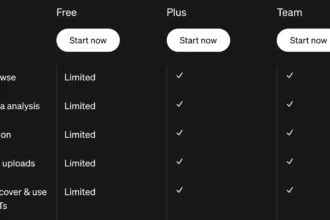Understanding Groundedness Score in LLM
Ah, groundedness score in LLM, huh? It’s like the quality control for your AI’s answers. Think of it as the measure of how well your AI’s responses are rooted in solid information. Just like how a tree needs strong roots to thrive, your AI needs a high groundedness score to provide reliable and accurate responses.
So, let’s dive into understanding this groundedness score in LLM a bit deeper. The groundedness score is a nifty little metric used in retrieval-augmented generation (RAG) pipelines to ensure that the generated answers have their feet firmly planted in the documents provided. It basically checks if your AI is speaking facts or just mumbo-jumbo!
To access and interpret this score, you can use the Groundedness Observability Dashboard. It’s like your AI’s personal truth detector! This dashboard shows you how well-grounded your AI’s answers are ranging from 0 (not so great) to 1 (rock-solid). And trust me, in this world of fake news and misinformation, having a trustworthy AI can be a game-changer!
Now, let’s talk about navigating this dashboard like a pro. When you log into deepset Cloud and head over to Groundedness, you can choose the pipeline you want to check. The dashboard will display the overall groundedness score for that pipeline along with a cool graph showing how the score has fared over time.
But wait! There’s more to this dashboard than meets the eye. The ‘Documents Referenced’ section provides insights into how often certain documents are referenced by your AI. This can help you understand your retriever’s performance and even optimize costs by excluding rarely used documents.
Saviez-vous: Adjusting the ‘top_k’ parameter of your pipeline can optimize the references sent to generate answers more efficiently. Tweak this setting wisely to enhance performance!
Now, imagine giving your AI an integrity test with each query it handles; that’s basically what monitoring its groundedness score does! So keep an eye on that scoreboard and watch your AI shine brighter than ever before! Curious for more tips on fine-tuning your AI? Let’s keep exploring in the next sections… Trust me; there’s plenty more exciting stuff ahead!
Table of Contents
ToggleHow to Use the Groundedness Observability Dashboard
To effectively use the Groundedness Observability Dashboard, log in to deepset Cloud and navigate to the ‘Groundedness’ section. Select the specific pipeline you want to assess, and you’ll be presented with valuable data about its groundedness score. This score reflects how well your AI’s responses are supported by the provided documents—it’s like having a fact-checker for your AI!
At the top of the dashboard, you’ll find the overall groundedness score for your selected pipeline. This score ranges from 0 (not so great) to 1 (excellent), indicating how rooted in data your AI’s answers are. The Groundedness Score graph illustrates how this score has evolved over time. Any fluctuations in groundedness could be attributed to updates in data, models, or pipelines.
Interactive Element: Have you ever hovered your mouse over a point on a graph and felt like you were uncovering hidden secrets? Well, with this dashboard, hovering over any point on the Groundedness Score graph reveals the average groundedness score for answers at that specific moment in time—just like peeling back layers of information!
The observability dashboard is powered by a cross-encoder model that crunches numbers behind the scenes to calculate this crucial metric. It serves as your go-to tool for monitoring and maintaining the reliability of your retrieval-augmented generation (RAG) pipelines.
Fun Fact: Did you know that keeping an eye on changes in groundedness can help you fine-tune your AI’s performance? By understanding how updates impact this score, you can optimize your pipelines for even better results! So, dive into that dashboard like a data detective and let the groundedness scores guide you towards AI excellence!
Importance of Groundedness in LLM Evaluation
Groundedness in LLM evaluation is paramount to ensure that the answers your AI generates are firmly rooted in the provided documents, just like how a tree needs its roots to stand tall. This groundedness score in retrieval-augmented generation (RAG) pipelines acts as a truth detector for your AI, making sure it’s serving up facts, not fiction. Monitoring this score through the Groundedness Observability Dashboard helps you gauge how well-grounded your AI responses are and maintain reliability in an age of misinformation.
To delve deeper into understanding how to evaluate groundedness effectively, it’s essential to grasp the significance of this metric. Groundedness checks how well your AI’s generated answers align with the information from the input source. By connecting your AI model to real-world data through grounding, you enhance its accuracy and relevance for specific applications. This bridging of abstract language representations with concrete entities leads to responses that are not only accurate but also contextually fitting.
One common misconception is that large language models (LLMs) come pre-loaded with all necessary data – in reality, they lack organization-specific information. Thus, grounding becomes crucial as it closes the gap between an LLM’s general knowledge and domain-specific understanding. Through grounding, you equip your AI with the tools necessary to provide more relevant responses tailored to your business needs, reducing instances of hallucination and human intervention requirements.
By incorporating grounding into your LLM processes, whether by leveraging private knowledge bases or enterprise systems, you pave the way for more accurate responses and improved user experiences. Grounding is like giving your AI a pair of boots firmly planted on solid ground; no fancy footwork or slip-ups here! So next time you assess your LLM’s performance through the groundedness score, remember that a well-grounded AI is a reliable one – ready to tackle any query thrown its way!
- The groundedness score in LLM is a metric used in retrieval-augmented generation pipelines to ensure AI responses are based on solid information.
- It measures how well AI responses are rooted in provided documents, ranging from 0 (not reliable) to 1 (very reliable).
- The Groundedness Observability Dashboard helps monitor and interpret the groundedness score, providing insights into AI performance and document references.
- Adjusting the ‘top_k’ parameter of the pipeline can optimize references sent to generate answers more efficiently, enhancing AI performance.



